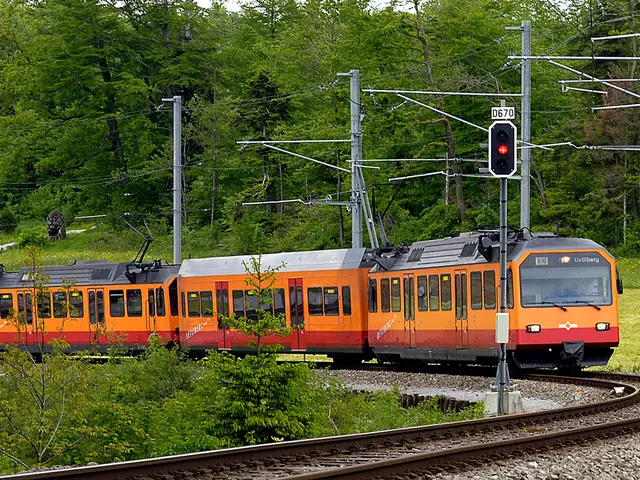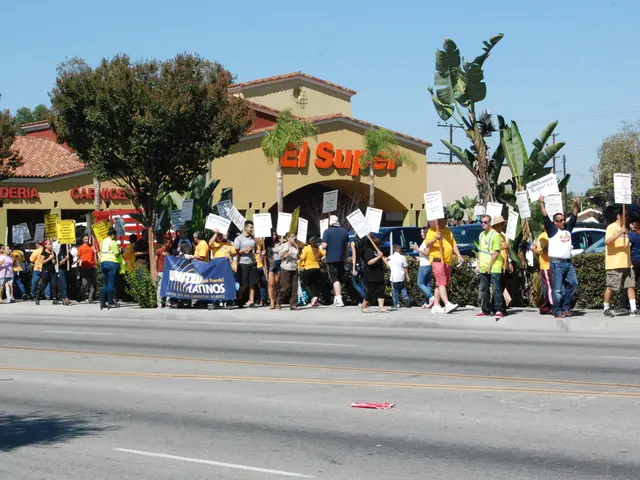Starlink halts acceptance of new orders in Lagos and Abuja due to network reaching maximum capacity
In a recent development, Starlink, the satellite-based internet service provider, has paused new sign-ups in several African cities due to a strain on its resources. The affected cities include Lagos, Abuja, and Victoria Island, Ikoyi, Lagos Island, Surulere, and Chevronville Estate in Lekki in Nigeria; Nairobi and neighboring counties in Kenya; Lusaka in Zambia; Accra in Ghana; and Harare in Zimbabwe.
The rapid increase in internet demand in these cities has put a significant strain on Starlink's system. With over 7 million users worldwide, the satellite fleet is struggling to support the growing number of subscribers, especially in densely populated urban areas.
In Nigeria, for instance, Starlink has reached capacity in several Lagos areas, leading to a freeze on new orders. Prospective customers are now required to pay a deposit to join a waitlist, but no estimated timeframe for availability is provided. Similar situations have been reported in Zambia's Lusaka and Ghana's Accra.
The challenge of sustaining reliable access in crowded cities like Lagos may require more than satellites alone. The country has over 160 million active internet subscriptions, yet broadband penetration still sits at around 48%, according to NCC data. This indicates a growing demand for internet services that the current infrastructure struggles to meet.
Similarly, in Kenya, Starlink froze new sign-ups in Nairobi and neighboring counties in November 2024. The company has launched over 7,600 satellites, with ambitions to hit 42,000, but only a fraction of its network covers any one region at a time.
The pause in new orders is necessary to protect service quality, according to engineers. When too many people in cities like Lagos or Nairobi try to connect, the system slows down, and new sign-ups are blocked. This is to ensure that existing users continue to receive a satisfactory service.
Starlink is not alone in this struggle. Internet demand in Nigeria is climbing at a pace that the networks struggle to keep up with. Even traditional internet service providers are feeling the strain of demand on their limited infrastructure in cities like Lagos and Abuja.
In a bid to address this issue, Starlink is seeking regulatory approval and working to launch more satellites. The real fix often requires more satellites in space or extra approval from regulators on the ground. However, this process takes time, and customers in the affected areas are advised to be patient.
In conclusion, the rapid growth in internet demand in African cities like Lagos, Nairobi, Lusaka, Accra, and Harare has put a significant strain on the resources of Starlink and traditional internet service providers. The company is working to address this issue by seeking regulatory approval and launching more satellites, but customers may have to wait before they can join the service.
Read also:
- Latest Edition of Bus-News Magazine Arrives for 2023!
- Testing the Camp Mode of the 2025 Tesla Model Y with Juniper's interior housing two kids, shockingly low CO2 levels were discovered.
- Demonstrating Carbon Storage in Agricultural Forestry through Digital Monitoring and Verification
- Updated advice for enhancing zero-emission bus (ZEB) resilience from the Center for Transportation and the Environment (CTE)








